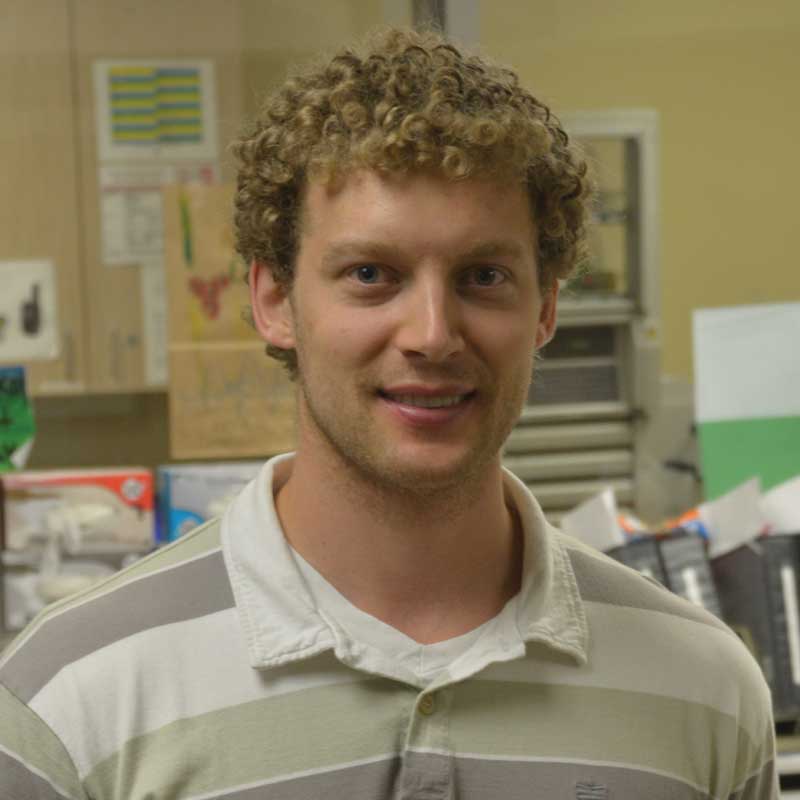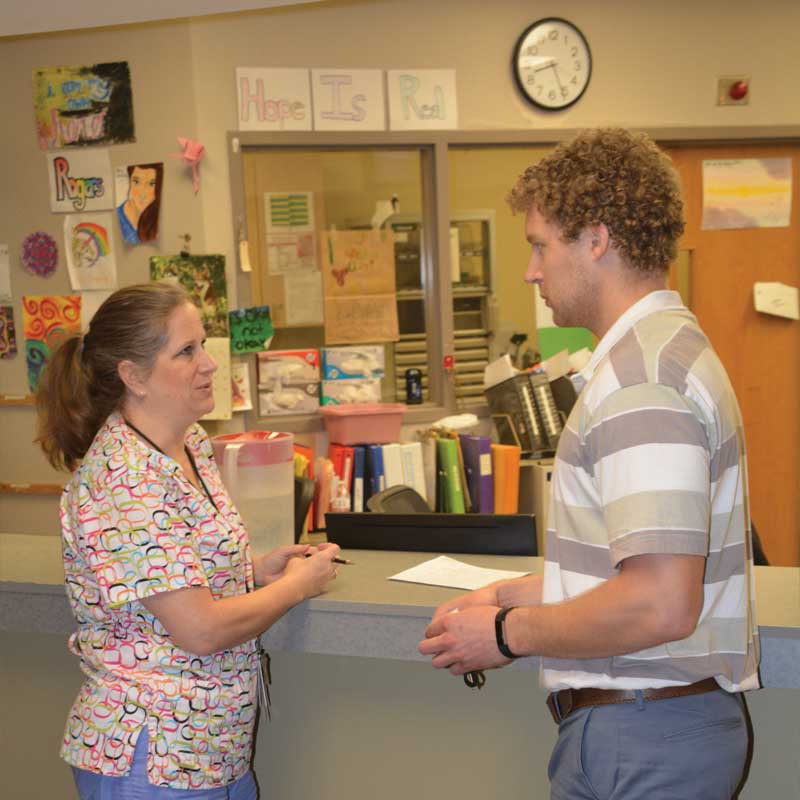
APA accreditation: good for Rogers, good for our interns
06/05/17 12:37:pm
APA accreditation is also important to students hoping to earn their PhD or PsyD because many of them are required to complete an internship through APA-accredited programs, guaranteeing they’ve received education and training from a quality organization. It’s also a great opportunity for Rogers to attract and keep talented professionals.
Our Oconomowoc site currently has two interns working with OCD and anxiety programming and our West Allis site has four interns in total. Tim Freundl is one of two in the child and adolescent inpatient unit.
“Internships for those getting their doctorate in psychology are similar to residencies for medical students,” Tim explains. “We practice as psychologists, under the supervision of Rogers’ licensed psychologists.” For many interns, the opportunity offers hands-on practice helping patients.

Tim’s internship working with children on the inpatient unit has offered a challenging opportunity for professional growth. “I wanted my internship to be an experience that would fine-tune my clinical skills,” he says. “So far I’ve been able to do that and develop a deeper understanding of what it means to be an empathetic, accepting and non-judgmental person.”
For Tim, being completing the journey to his doctorate at Rogers hits home. “It’s been so meaningful for me to come full circle and end my clinical graduate training at the place where I started—a place that taught me so many valuable lessons and skills.”
When he completes his internship in August, Tim is joining the child and adolescent day treatment program in Brown Deer as a psychological assistant.





